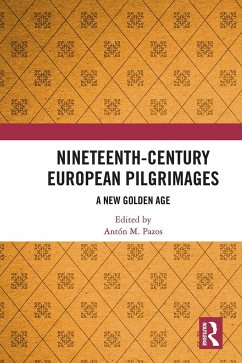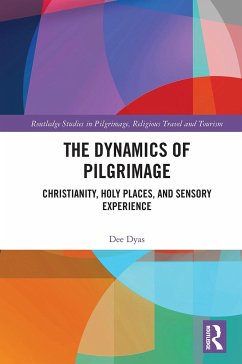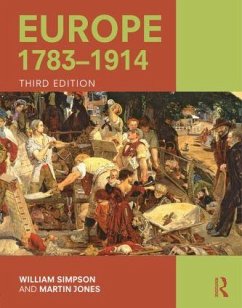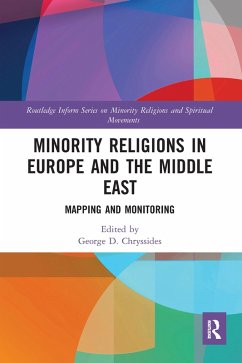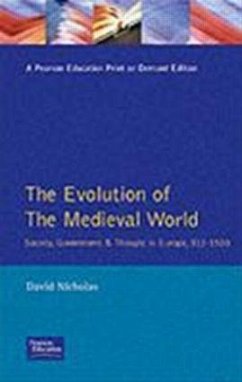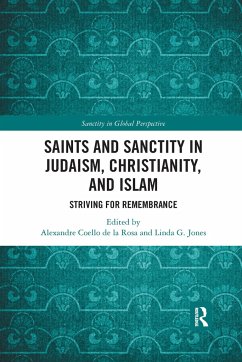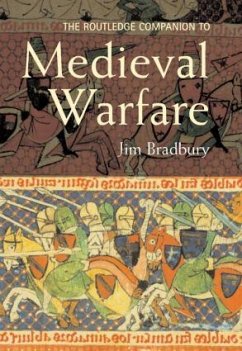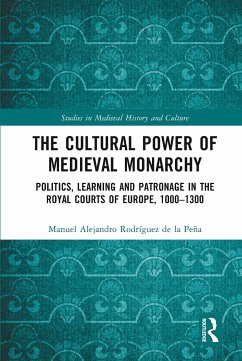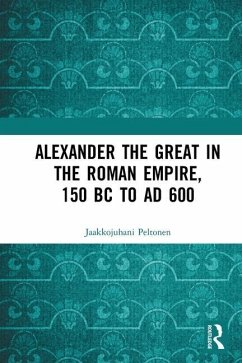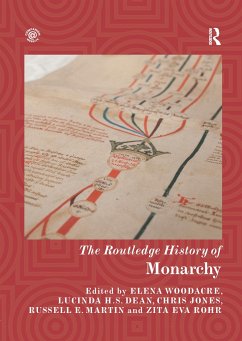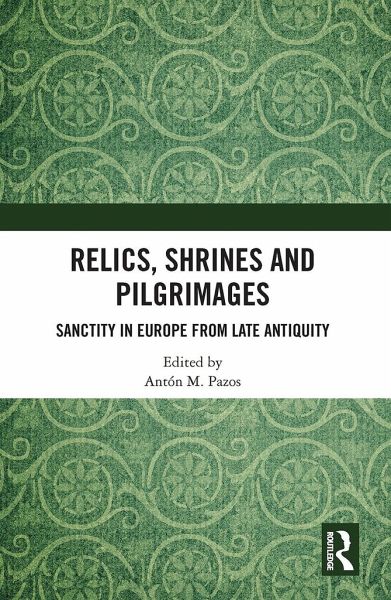
Relics, Shrines and Pilgrimages
Sanctity in Europe from Late Antiquity
Herausgegeben: Pazos, Antón M.
Versandkostenfrei!
Versandfertig in 6-10 Tagen
46,99 €
inkl. MwSt.
Weitere Ausgaben:

PAYBACK Punkte
23 °P sammeln!
Since Late Antiquity, relics have provided a privileged spiritual bond between life and death, between human beings and divinity. Royalty, nobility and clergy all tried to obtain the most prestigious remains of sacred bodies, since they granted influence and fame and allowed the cult around them to be used as a means of sacralization, power and propaganda. This volume traces the development of the veneration of relics in Europe and how these objects were often catalysts for the establishment of major pilgrimage sites that are still in use today.The book features an international panel of contr...
Since Late Antiquity, relics have provided a privileged spiritual bond between life and death, between human beings and divinity. Royalty, nobility and clergy all tried to obtain the most prestigious remains of sacred bodies, since they granted influence and fame and allowed the cult around them to be used as a means of sacralization, power and propaganda. This volume traces the development of the veneration of relics in Europe and how these objects were often catalysts for the establishment of major pilgrimage sites that are still in use today.
The book features an international panel of contributors taking a wide-ranging look at relic worship across Europe, from Late Antiquity until the present day. They begin with a focus on the role of relics in Jacobean pilgrimage, before looking at the link between relics and their shrines more generally. The book then focuses in on two major issues in the study of relics, the stealing of relics (Furta Sacra) and their modern-day scientific examination and authentication. These topics demonstrate not only symbolic importance of relics, but also their role as physical historical objects in material religious expression.
This is a fascinating collection, featuring the latest scholarship on relics and pilgrimage across Europe. It will, therefore, be of great interested to academics working in Pilgrimage, Religious History, Material Religion and Religious Studies as well as Anthropology, Archaeology, Art and Cultural Studies.
The book features an international panel of contributors taking a wide-ranging look at relic worship across Europe, from Late Antiquity until the present day. They begin with a focus on the role of relics in Jacobean pilgrimage, before looking at the link between relics and their shrines more generally. The book then focuses in on two major issues in the study of relics, the stealing of relics (Furta Sacra) and their modern-day scientific examination and authentication. These topics demonstrate not only symbolic importance of relics, but also their role as physical historical objects in material religious expression.
This is a fascinating collection, featuring the latest scholarship on relics and pilgrimage across Europe. It will, therefore, be of great interested to academics working in Pilgrimage, Religious History, Material Religion and Religious Studies as well as Anthropology, Archaeology, Art and Cultural Studies.





